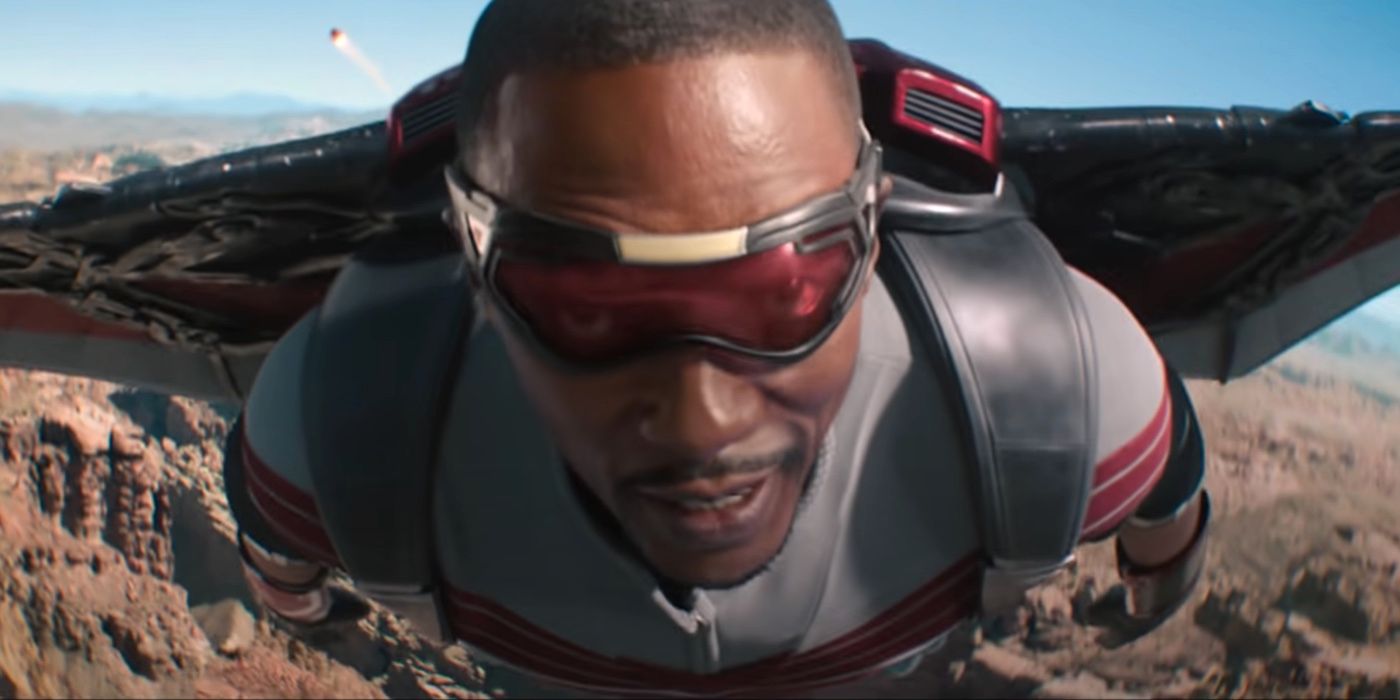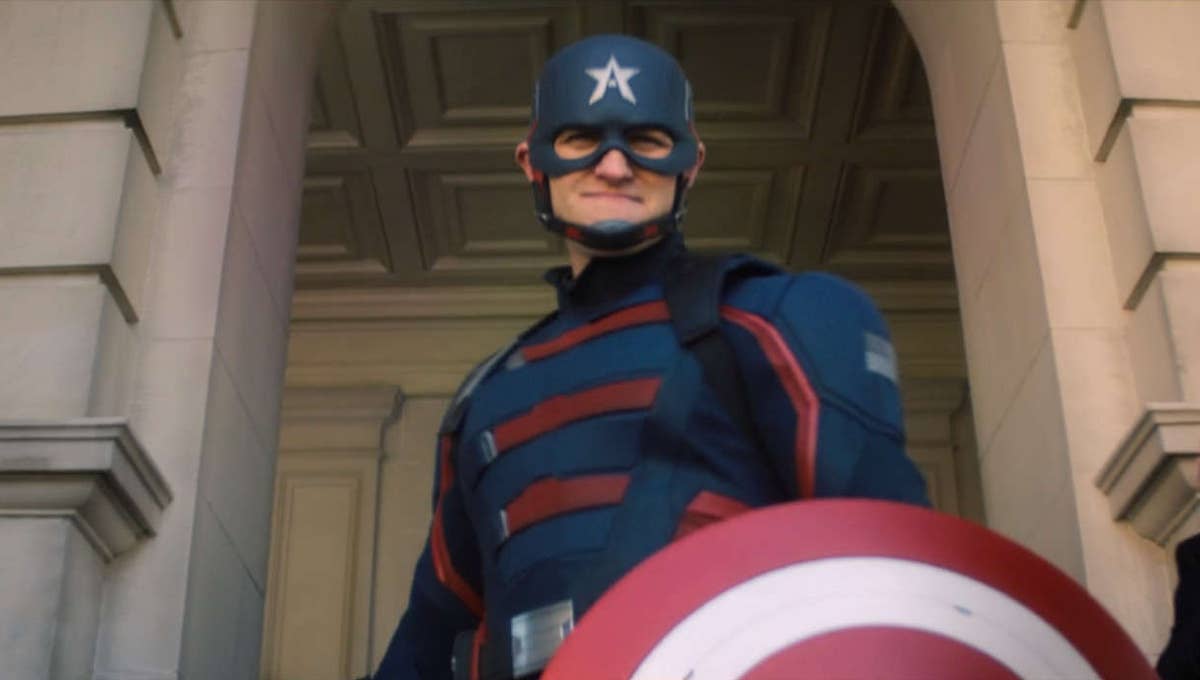 By Jacob Sahms
By Jacob Sahms
Two episodes into the latest entry in Disney/Marvel’s Phase 4 of the Marvel Cinematic Universe, The Falcon & Winter Soldier, it’s clear that Malcolm Spellman’s script carries the weight of fans’ and audiences’ expectations on the broad shoulders of Anthony Mackie and Sebastian Stan. As Falcon and Winter Soldier/Bucky, the two actors provide the vibe necessary to exist in the Marvel universe, bridging the action from the big screen to the smaller streaming one. In a COVID-influenced cinematic market, it’s a rare find for those seeking cinematic-level entertainment of heroic proportions.
 The first episode drops us in a world post-Blip, the time when half of the population was erased by one Thanos-sized snap and then brought back. Mackie’s Sam Wilson must wrestle with receiving Captain America’s shield from Steve Rogers at the end of Avengers: Endgame, and with helping his sister keep their parents’ fishing business afloat. Stan’s Bucky wrestles with his post-brainwashing PTSD, and all of the crimes that he committed while under Hydra’s influence. The two of them squabble like brothers, exchanging wise-cracks and arguing, while also turning into a crime-fighting pair of heroes the world needs quite desperately.
The first episode drops us in a world post-Blip, the time when half of the population was erased by one Thanos-sized snap and then brought back. Mackie’s Sam Wilson must wrestle with receiving Captain America’s shield from Steve Rogers at the end of Avengers: Endgame, and with helping his sister keep their parents’ fishing business afloat. Stan’s Bucky wrestles with his post-brainwashing PTSD, and all of the crimes that he committed while under Hydra’s influence. The two of them squabble like brothers, exchanging wise-cracks and arguing, while also turning into a crime-fighting pair of heroes the world needs quite desperately.
 By the second, the audience realizes that there’s still bad in the world, post-Thanos, like the Flagsmashers who steal supplies and have some of the Super Soldier Serum in them. But they might not be the worst evil: there’s something else going on, wrestling with power, and that evil even touches the person that the U.S. government hands Cap’s shield to, John Walker (Wyatt Russell), who’s known in the comics as U.S. Agent or Super-Patriot, and not always for good reasons.
By the second, the audience realizes that there’s still bad in the world, post-Thanos, like the Flagsmashers who steal supplies and have some of the Super Soldier Serum in them. But they might not be the worst evil: there’s something else going on, wrestling with power, and that evil even touches the person that the U.S. government hands Cap’s shield to, John Walker (Wyatt Russell), who’s known in the comics as U.S. Agent or Super-Patriot, and not always for good reasons.
And then, there’s the systemic evil that couldn’t be more evident, without banging us over the head with the shield. The Wilsons struggle to get a bank loan, but Sam’s hero status almost nets them money; Wilson and Bucky get hassled by some cops based on Wilson’s frustration, but when his status becomes known, it’s Bucky who’s put in cuffs for something unrelated to the traffic stop (flipping the expectation that the black man would end up in the back of the police cruiser); the two modern heroes meet an older black hero who was jailed because his powers were deemed too dangerous. Subtle moments show the crew’s desire to entertain, but also to provide the audience with something to think about — what does it mean to be heroic in America? What does it mean to be black and heroic?
 The show isn’t as tough or violent as the Marvel shows that aired on Netflix (Daredevil, Jessica Jones, Luke Cage) but it seems to have more to say than some of the Marvel films have. Maybe the move to Disney+ will give Marvel a shot in the arm, to have more to say, to do more with the heroic opportunities they have available to the platform.
The show isn’t as tough or violent as the Marvel shows that aired on Netflix (Daredevil, Jessica Jones, Luke Cage) but it seems to have more to say than some of the Marvel films have. Maybe the move to Disney+ will give Marvel a shot in the arm, to have more to say, to do more with the heroic opportunities they have available to the platform.
Who knows, maybe that will inspire its viewers to be more outspoken about their opportunities to be heroic, too.




